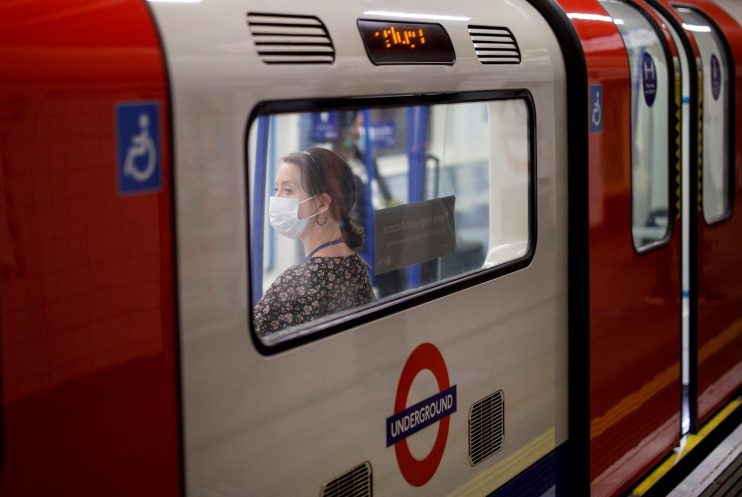London’s transport system must not be sacrificed on the altar of ‘levelling up’

Dare to dream: Crossrail might be about to arrive. Delay after demoralising delay pushed back the original 2018 opening, but Transport for London has hailed the “significant milestone” of the start of trial operations. Thousands of volunteers will help TfL test the £19bn railway over the coming months, with the aim of finally opening the brand new Elizabeth line in the first half of 2022, four years since The Queen was originally due to cut the ribbon.
It may be late, but the colossal project has been dubbed Europe’s biggest and most ambitious infrastructure project. Completing it should be a moment of Brunelian triumph. But there is a dark cloud hanging over the occasion: TfL is broke. Beneath all the glamour of glistening white platforms, sparkling new jumbo trains, regal purple roundels, and beautifully restored Victorian stations, parts of London’s transport network face termination.
Starting from as soon as next month, bus services could be cut by a fifth and Tube services by almost a tenth, with upgrades and new projects shelved. TfL Commissioner, Andy Byford, who took up the role in the thick of the pandemic last year, warned that London is “staring into the abyss” without adequate long-term intervention. Against a backdrop of a funding war between the Mayor of London and No10, TfL Chief financial officer, Simon Kilonback , has warned the fiscal crisis could result in the “full closure of a line or part of a line”. Getting the Elizabeth line finished was “a darn sight easier” than trying to sort out the black hole, he said.
Having a capital with a modern transport system will ensure a blueprint for other successful cities in the UK. The revival of the Night Tube is an essential part of a modernisation programme, despite strike efforts from RMT which brought the capital to a standstill last week. It is a lifeline for the night time economy, it provides reliable and safe routes home for Londoners, especially women, and it should be seen as a service as essential as daytime transport.
It also paints London as a city of the future, ready to cater to an ever-changing world.
The fate of London’s iconic transport network has tricky political implications for the Government and threatens to put it in opposition to its raison d’être – to level up the country. In the recent Integrated Rail Plan, ambitious rail infrastructure investments were massively scaled down, especially in many of the areas key to Boris Johnson’s majority. The railway may have been born in Britain, but upgrades vital to bring our lines into the twenty-first century lag embarrassingly behind.
In this context, a big rescue package for TfL risks looking like the London-centric favouritism Johnson vowed to shun. But the consequences of failing to support TfL would be catastrophic for the entire country. Like it or not, London is the engine (excuse the pun) that drives the UK economy, and if it stalls, the recovery from the pandemic will be put into jeopardy.
Letting London down will not level up the Midlands and the North; it will make it harder to do so. It would be an especially bizarre move for a government led by a former Mayor of London, who surely understands the implications of the capital’s prosperity on the rest of the country.
It may be a convenient political strategy to blame Sadiq Khan and his flawred fare freeze. But with the Mayor firmly in place until 2024, constant back and forth between City Hall and Downing Street does little except create an ongoing air of uncertainty in the capital.
